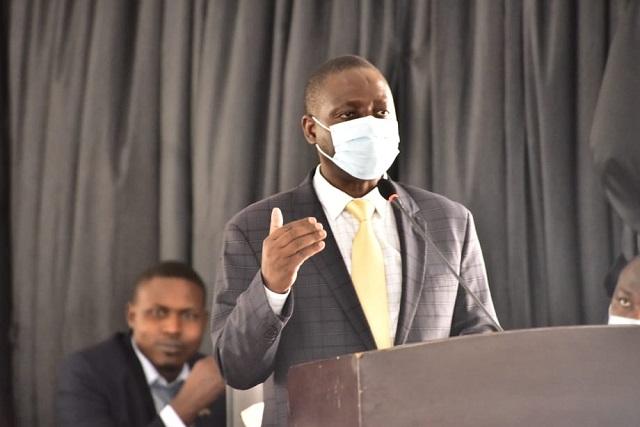
Kampala, Uganda | THE INDEPENDENT | Government ministries are yet to agree on how to manage the Shillings 200 billion relief package that President Yoweri Museveni announced for micro, small and medium enterprises while announcing the second COVID-19 induced lockdown. More than a month later, the money is yet to be released to the would-be recipients.
The cash was meant for smaller businesses that were to be highly affected by the lockdown as markets and arcades were closed and people’s movement restricted by a ban on public transport. According to the President’s speech, the government offered Shillings 100 billion, while the participating financial institutions were also to contribute Shillings 100 billion.
President Museveni said then that the money would be handed over to the Bank of Uganda, for online distribution through the commercial banks and other qualifying financial institutions. The State Minister for Industry David Bahati says that the money is there and ready for disbursement but the modalities of disbursing it are yet to be finalized.
“The important thing is that the money is there. Let us first finalize the procedures with other stakeholders, decide where the money will be channelled through, then we can tell the public who is supposed to get the money,” said Bahati in an interview.
There are however concerns that the commercial banks usually increase the cost of the money to the beneficiaries, by setting higher interest rates. Some of these facilities cited include the Agricultural Credit Facility managed through the Bank of Uganda, under which enterprises get the money at between 12 and 15 percent per year.
The Minister of Trade, Industry and Cooperatives, Francis Ndebesa says no MSME can borrow at an interest rate that high and you expect them to pay back the loan in five years. Ndebesa wonders why the money should be so costly and yet it comes from the government.
The Ministry says it found problems monitoring the previous credit facilities that were managed by different agencies, including the ongoing Emyooga wealth creation fund. This they say was one of the problems why many beneficiaries took long to receive it and others were cheated out, because of the system that was not well streamlined.
Emyooga was given to SACCOs which are registered under the Ministry of Trade and Cooperatives, but the money was handled by the Uganda Microfinance Support Centre in conjunction with commercial banks and microfinance organisations.
The relief package announced by Museveni is yet to be given out because of such misunderstandings, with each of the two ministries claiming they are better placed. State Minister for Microfinance says they intend to use the same model used for the Agriculture Credit Facility, which ministers of trade, industry and cooperatives disagree with.
State Minister for Trade, Harriet Ntabazi says she does not see why this money should not be managed by her ministry which has all the infrastructure, including being in charge of the people who are the beneficiaries.
She however says that there are ongoing negotiations with the different stakeholders and this cannot block the money from being released and utilized.
This was at the handover of office by Acting Permanent Secretary, Grace Adong Choda, to Geraldine Ssali, the first substantive PS in three years since the death of Julius Onen.
Ssali has been out of the public view since she controversially left the National Social Security Fund as Deputy Managing Director, after disagreements with her former bosses in 2017.
She warned that she is carrying along her mode of operation that is based on integrity, transparency and accountability. She says her aim is to be a center of excellence in public administration.
But State Minister for Industry David Bahati implored her to work according to the laid-down procedures of government and consult ministers, instead of bothering with “strategic issues”.
*****
URN
 The Independent Uganda: You get the Truth we Pay the Price
The Independent Uganda: You get the Truth we Pay the Price


